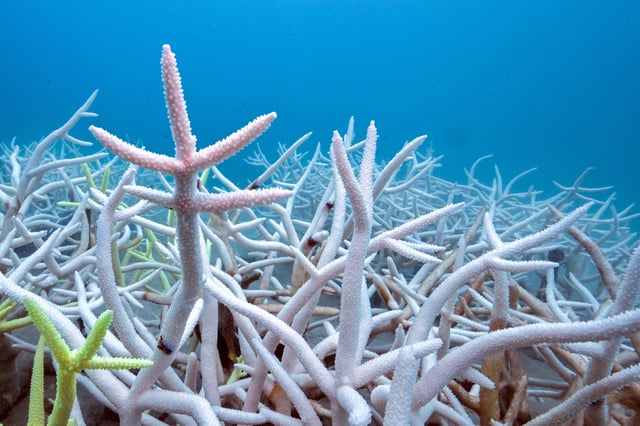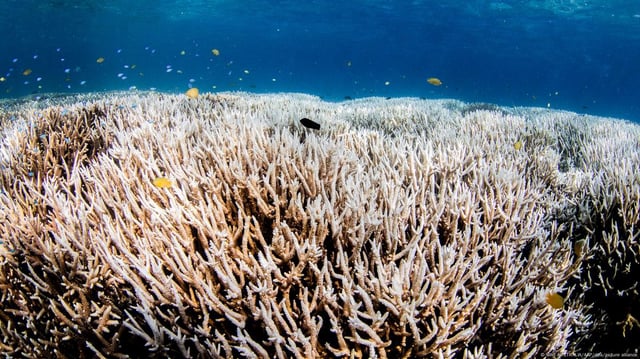Overview
- The ongoing global coral bleaching event, officially declared in April 2024, has affected 84% of the world's coral reefs, surpassing the 2014–2017 event in scale and severity.
- Record-high ocean temperatures, fueled by human-caused climate change, have driven this crisis, with 2024 being the hottest year on record and sea surface temperatures averaging 20.87°C.
- Even historically resilient reefs like Raja Ampat and the Gulf of Eilat have succumbed, indicating no remaining safe havens from extreme heat stress.
- Post-bleaching surveys report coral mortality rates as high as 93% in some areas, including parts of Mexico and the Great Barrier Reef, with recovery windows shrinking due to persistent heat.
- Scientists emphasize the urgent need for significant reductions in greenhouse gas emissions to prevent further reef loss, as projections predict up to 90% of reefs could disappear at 1.5–2°C of warming.


